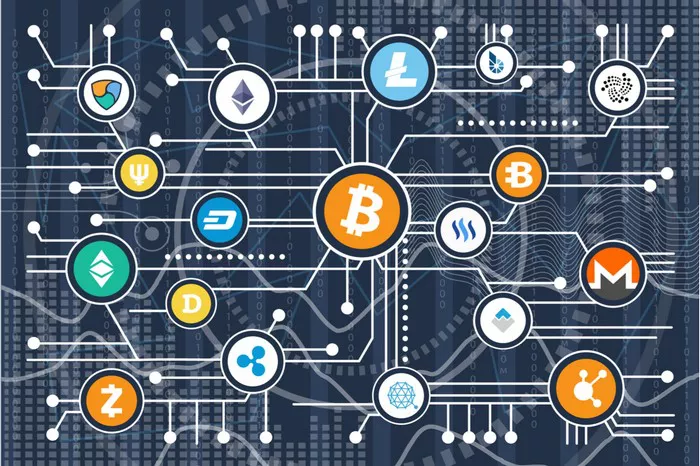Cryptocurrency has gained widespread attention over the past decade, with digital assets becoming a prominent part of the global financial landscape. Among the many terms that are frequently used in this space is the word “token.” But what exactly is a cryptocurrency token? How does it differ from a cryptocurrency coin, and why are tokens an essential part of the blockchain ecosystem?
In this article, we will explore the concept of cryptocurrency tokens, their types, how they work, their role in decentralized finance (DeFi), and how they differ from coins. By the end, you will have a clear understanding of cryptocurrency tokens and their significance in the world of blockchain and digital assets.
Understanding Cryptocurrency Tokens
A cryptocurrency token is a digital asset that operates on a blockchain and represents various types of value. Unlike cryptocurrency coins such as Bitcoin or Ethereum, which operate on their own native blockchains, tokens are typically built on top of existing blockchains, most commonly Ethereum. These tokens serve a variety of functions, from representing ownership of assets to serving as a form of currency within a specific application or ecosystem.
Tokens are a critical part of the broader cryptocurrency and blockchain ecosystem. They can represent ownership of tangible assets like real estate, stocks, or even intellectual property. They can also serve as access rights to a platform, voting power in governance protocols, or rewards for participating in a particular blockchain network.
Difference Between Cryptocurrency Tokens and Coins
Many people often confuse cryptocurrency tokens with coins, but there is a fundamental difference between the two. Understanding this distinction is key to grasping the broader scope of digital assets.
1. Cryptocurrency Coins
Cryptocurrency coins, such as Bitcoin, Ethereum, or Litecoin, are digital currencies that operate on their own blockchain. For example, Bitcoin runs on the Bitcoin blockchain, and Ether operates on the Ethereum blockchain. These coins are primarily used as a medium of exchange, store of value, or unit of account.
Coins can be mined, transferred, and used directly within their respective blockchains. They serve as the native currency of their blockchain and are generally used for transactions, payments, and securing the network (as in Proof-of-Work or Proof-of-Stake consensus mechanisms).
2. Cryptocurrency Tokens
Cryptocurrency tokens, on the other hand, do not have their own native blockchain. Instead, they are created and operate on existing blockchains, most commonly on Ethereum using the ERC-20 or ERC-721 standards. Tokens represent assets, rights, or access within a particular decentralized application (dApp) or blockchain ecosystem.
Tokens can have a variety of uses beyond currency, including representing digital ownership, voting rights, governance participation, and more. A common analogy is that tokens are like “tickets” or “shares” that represent a stake in an ecosystem, while coins are more like the currency of that system.
Types of Cryptocurrency Tokens
There are different types of cryptocurrency tokens, each serving a unique purpose within the blockchain ecosystem. Broadly, tokens can be classified into three main categories: utility tokens, security tokens, and governance tokens. Each of these has a distinct role and application in the crypto world.
1. Utility Tokens
Utility tokens are perhaps the most common type of cryptocurrency token. They provide users with access to a product or service within a particular platform or ecosystem. These tokens are designed to be used within the network for specific functions, such as paying for transactions, accessing certain services, or participating in platform activities.
A well-known example of a utility token is Binance Coin (BNB), which is used on the Binance exchange platform for paying transaction fees and accessing certain trading discounts. Another example is Basic Attention Token (BAT), which powers the Brave browser’s advertising model, where users earn tokens by engaging with advertisements.
2. Security Tokens
Security tokens represent ownership in an asset, such as a company’s shares, bonds, real estate, or other financial instruments. Security tokens are subject to the same regulations as traditional securities, and they often provide holders with rights like dividends, profit-sharing, or ownership stakes.
Because security tokens represent real-world assets, they are closely regulated by government authorities. Issuing a security token typically involves adhering to legal frameworks that govern traditional securities offerings, such as Know Your Customer (KYC) and Anti-Money Laundering (AML) regulations.
An example of a security token is tZERO, a tokenized security trading platform that offers ownership in real estate, businesses, or other assets.
3. Governance Tokens
Governance tokens give holders the ability to vote on protocol changes, system upgrades, or decisions affecting the future of a blockchain project. They are particularly popular in decentralized finance (DeFi) projects, where decisions about the protocol’s future are made by token holders rather than a centralized authority.
For example, holders of Maker (MKR) tokens can vote on changes to the MakerDAO protocol, including adjustments to stability fees or collateral types. Similarly, Uniswap (UNI) holders can vote on proposals to change the decentralized exchange’s governance system or future roadmap.
How Cryptocurrency Tokens Work
Tokens are created and distributed using smart contracts, which are self-executing agreements with the terms of the contract directly written into code. These smart contracts run on blockchain platforms such as Ethereum, Binance Smart Chain, or Solana. The most widely used standard for creating tokens is ERC-20 on the Ethereum network.
The creation and transfer of tokens follow the predefined rules of these smart contracts, which govern how tokens are issued, transferred, and stored. Once tokens are created, they can be distributed to users through an Initial Coin Offering (ICO) or Initial Token Offering (ITO) to raise funds for the project. After issuance, tokens can be traded on cryptocurrency exchanges, stored in wallets, or used within decentralized applications (dApps).
Token Standards
Token standards ensure consistency and compatibility across different blockchain platforms. These standards define a set of rules that developers must follow when creating tokens. Below are some common token standards:
1. ERC-20
ERC-20 is the most popular standard for creating tokens on the Ethereum blockchain. It defines a set of rules that tokens must adhere to, including how tokens are transferred and how balances are tracked. Most utility and governance tokens are based on the ERC-20 standard.
2. ERC-721
ERC-721 is used to create non-fungible tokens (NFTs), which represent unique digital assets that cannot be exchanged on a one-to-one basis like ERC-20 tokens. NFTs are used to tokenize unique assets such as digital art, collectibles, and virtual real estate.
3. BEP-20
BEP-20 is the token standard used on Binance Smart Chain (BSC), providing similar functionality to Ethereum’s ERC-20. BEP-20 tokens are compatible with both Binance Smart Chain and Binance Chain, offering fast and low-cost transactions.
See Also: What is Short-Term Trading in Cryptocurrency?
The Role of Tokens in Decentralized Finance (DeFi)
Tokens play a central role in the world of Decentralized Finance (DeFi), which refers to the use of blockchain technology to recreate traditional financial services like lending, borrowing, trading, and insurance without the need for intermediaries like banks. In DeFi, tokens represent value and are used to facilitate transactions, govern protocols, and provide liquidity in decentralized exchanges (DEXs).
For example, in a decentralized lending platform like Aave, users can lend their cryptocurrency tokens to others and earn interest in return. Borrowers use tokens as collateral to secure loans. In decentralized exchanges like Uniswap or SushiSwap, liquidity providers deposit tokens into liquidity pools and earn rewards in the form of transaction fees or governance tokens.
Governance tokens are particularly important in DeFi, as they give holders the power to vote on protocol changes, new features, and how the platform’s treasury funds should be spent.
The Importance of Cryptocurrency Tokens
Cryptocurrency tokens offer numerous advantages and are essential for the growth and development of the blockchain ecosystem. Below are some key reasons why tokens are important.
1. Enhancing Blockchain Functionality
Tokens expand the functionality of blockchain technology by allowing the creation of digital assets and applications on top of existing blockchains. This flexibility enables developers to build decentralized applications (dApps) that offer services such as decentralized finance, gaming, and supply chain management.
2. Tokenization of Assets
One of the key innovations brought by cryptocurrency tokens is the tokenization of assets. By representing ownership of real-world assets, such as real estate or company shares, tokens enable easier, faster, and more secure transfer of ownership. Tokenization also allows for fractional ownership, meaning investors can own a portion of a high-value asset, such as a piece of real estate, without buying the entire property.
3. Decentralized Governance
Tokens empower decentralized governance, allowing blockchain networks to operate without centralized authorities. Governance tokens give holders a direct say in the protocol’s development and decision-making process, fostering a more democratic and transparent system.
4. Raising Capital
Cryptocurrency tokens are a popular fundraising tool for blockchain projects through Initial Coin Offerings (ICOs) or Security Token Offerings (STOs). These fundraising methods allow startups and entrepreneurs to raise capital from a global pool of investors, bypassing traditional venture capital methods.
Risks Associated with Cryptocurrency Tokens
While tokens offer several advantages, they also come with risks. Understanding these risks is crucial for both investors and developers in the cryptocurrency space.
1. Regulatory Uncertainty
The regulatory environment surrounding tokens is still evolving, and different jurisdictions have different rules regarding token issuance and trading. In some countries, certain types of tokens may be classified as securities, subjecting them to stricter regulatory scrutiny. Failure to comply with regulations can lead to legal challenges or financial penalties.
2. Scams and Fraud
The rapid rise of token-based fundraising, such as ICOs, has attracted scammers looking to take advantage of unsuspecting investors. Pump-and-dump schemes and fraudulent projects have been common in the token market, leading to significant losses for investors.
3. Market Volatility
Tokens, like other cryptocurrencies, are prone to extreme price volatility. Factors such as market sentiment, regulatory changes, or technological developments can lead to sharp fluctuations in token prices, making it difficult for investors to predict market trends.
Conclusion
Cryptocurrency tokens are a crucial component of the blockchain and digital asset ecosystem. Whether serving as a utility within a specific platform, representing ownership of real-world assets, or providing governance rights in decentralized protocols, tokens offer a wide range of applications and opportunities. While the future of cryptocurrency tokens looks promising, they come with risks that must be carefully managed, particularly as regulatory frameworks evolve.
Understanding the role of tokens, how they work, and the different types available is essential for anyone looking to participate in the cryptocurrency market, whether as an investor, developer, or user.
Related topics:


























